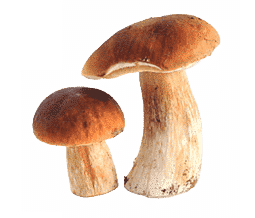
What You Need To Know About Treating PTSD with Psilocybin

Understanding the Power of Psilocybin
Imagine being so scared of something that it feels like a monster is hiding in your closet, even though you know it’s just a pile of clothes. For people with Post-Traumatic Stress Disorder (PTSD), this is a reality. Their brains find it tough to let go of fear connected to things that remind them of a terrible event. Scientists are looking into a substance called psilocybin, found in magic mushrooms, to see if it can help people with PTSD overcome their fears.
The Hippocampus: The Brain’s Learning and Memory Center


Investigating Psilocybin as a Possible Solution
While psilocybin is already being explored as a treatment for depression, which is often a symptom of PTSD, scientists wondered if it could help the brain let go of fear in people with PTSD. Some studies suggest that psilocybin can create new connections between brain cells, which may explain its positive effects on depression.
The “Post-Traumatic Stress Disorder Treatment with Psychedelic Drugs” scenario from the NYU School of Medicine’s Bioethics Division discusses the potential use of psychedelic drugs like psilocybin for treating PTSD. This learning scenario highlights the significance of exploring alternative treatments for PTSD, given the limitations of existing medications. It emphasizes the need for further research to better understand the potential benefits of psilocybin.

To test this idea, researchers turned to mice. They trained the mice to be afraid of a certain sound by giving them a little electric shock whenever they heard the sound. Afterward, some mice received a dose of psilocybin and were trained not to be afraid of the sound anymore. The scientists wanted to find out if the psilocybin could help the mice become less scared.
Psilocybin’s Effect on Fear: A Mouse Experiment

The results were fascinating! The mice that received psilocybin had a much easier time overcoming their fear compared to the mice that didn’t get any psilocybin. But it didn’t stop there. The scientists also took a peek at the mice’s brains.
They discovered that the hippocampi of the mice that received psilocybin looked similar to the brains of regular, non-fearful mice. In contrast, the untreated mice had a decline in the structures in their brain cells that receive signals.
The study titled “Reviewing the Potential of Psychedelics for the Treatment of PTSD” in the National Institutes of Health’s PubMed Central database discusses the potential of using psychedelics, including psilocybin, to treat PTSD. This review article provides an overview of the current research in the field, emphasizing the need for further investigation to develop effective treatments for PTSD. It discusses the role of the hippocampus and how psychedelics may influence its function.
Why This Matters: The Need for New PTSD Treatments
Why is this study so important? Well, there are only a few drugs approved to treat PTSD, and they don’t always work well for everyone. They can also have some serious side effects. That’s why finding new and effective treatments is crucial. This study suggests that psilocybin could be a promising option. More research is needed to confirm these results, but it’s definitely an exciting step forward.
As mentioned in “Harnessing Psilocybin to Treat PTSD,” the limitations of current PTSD treatments are a driving force behind the exploration of alternative options. The article emphasizes the potential of psilocybin in addressing the shortcomings of traditional therapies. This aligns with the findings of the mouse experiment, highlighting the need for further research to solidify psilocybin’s effectiveness.

The Future of PTSD Treatment

In conclusion, there’s a growing body of evidence that suggests psilocybin might be helpful in treating PTSD. This study offers hope that psilocybin could be a promising treatment for people with PTSD, but it’s essential to remember that more research is needed to be sure. Scientists are working hard to unlock the potential of psilocybin and explore its benefits in the world of mental health.
As researchers continue to explore the potential of psilocybin for treating PTSD, the hope for more effective treatments and improved outcomes for people with this condition is steadily growing. It’s important to keep in mind that the world of science is always changing and evolving, just like our understanding of psilocybin and its potential to help those who need it most. With more studies, rigorous research, and the support of the scientific community, the path toward a brighter future for those living with PTSD may become clearer and more achievable.
Last Thoughts
If you feel you might be ready to experiment with psilocybin, please contact us at: https://www.mindmend.co/contact-us/ or visit mindmend.co. We have professionals trained to discuss how psilocybin might help you.
References
Harnessing Psilocybin to Treat PTSD
https://neurosciencenews.com/ptsd-psychedelic-psilocybin-pharmacology-23158/
Post-Traumatic Stress Disorder Treatment with Psychedelic Drugs
Reviewing the Potential of Psychedelics for the Treatment of PTSD
https://www.ncbi.nlm.nih.gov/pmc/articles/PMC7311646/
Krediet E, Bostoen T, Breeksema J, van Schagen A, Passie T, Vermetten E. Reviewing the Potential of Psychedelics for the Treatment of PTSD. Int J Neuropsychopharmacol. 2020 Jun 24;23(6):385-400. doi: 10.1093/ijnp/pyaa018. PMID: 32170326; PMCID: PMC7311646.




